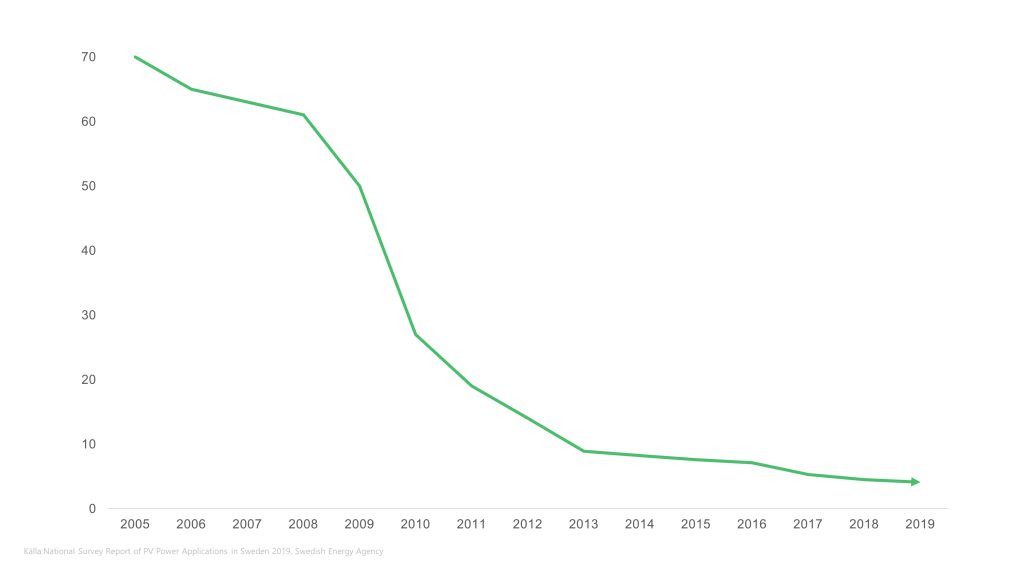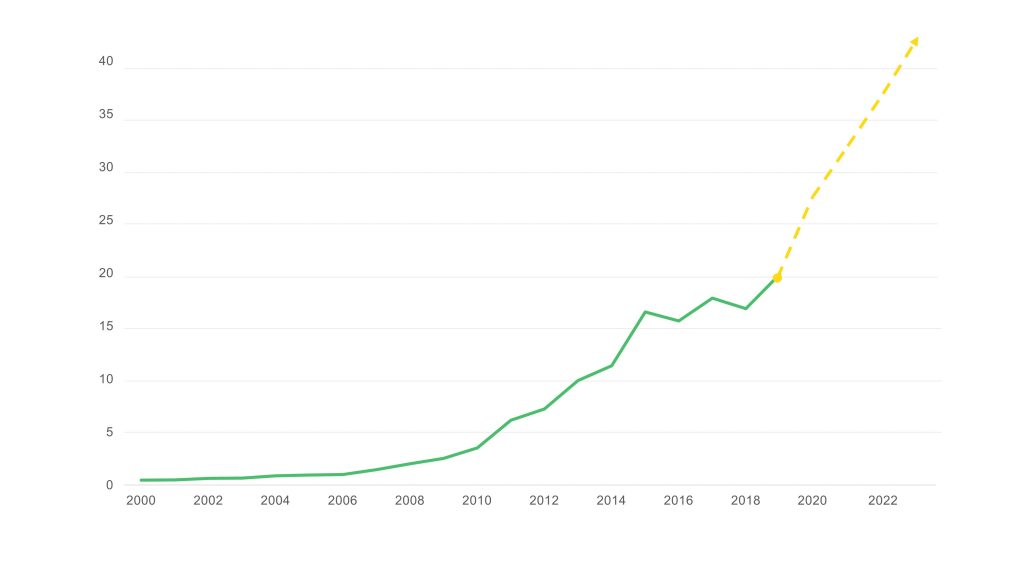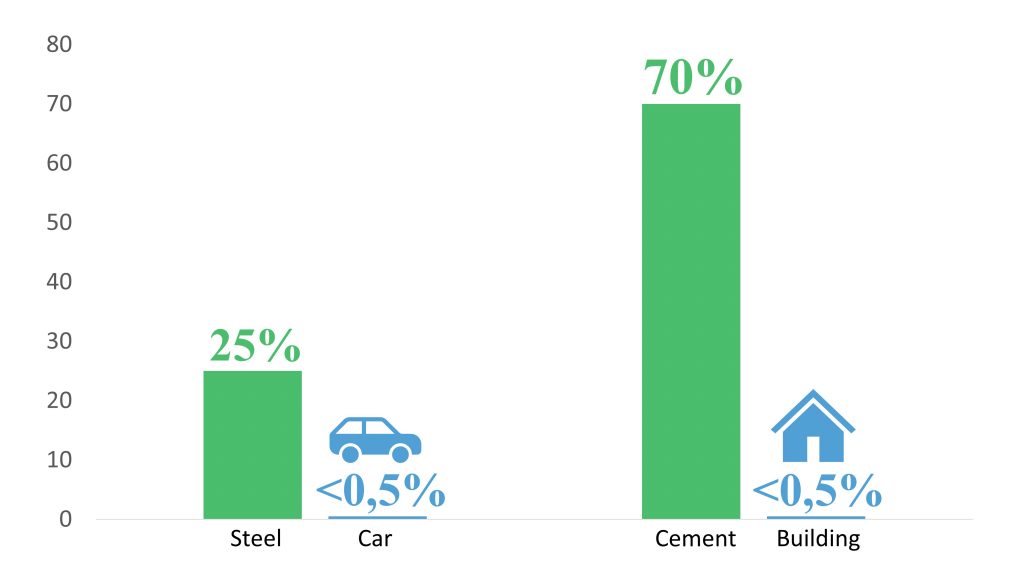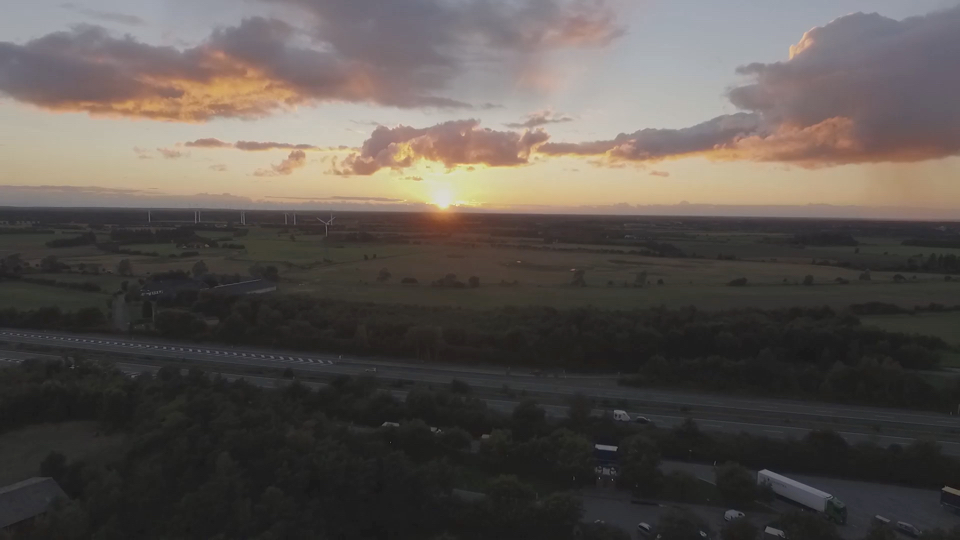The transition in industry and for the transport sector is going to mean major changes, but for the public its effects will, on the whole, be more likely to be able to increase quality of life.
Lower air pollution and less noise makes towns and cities more attractive. New services and alternatives are being developed all the time to meet needs. Many of the changes resulting from digitalisation reduce emissions without us even thinking about it – streaming and sharing services, for instance. Life will certainly be changed by the transition to being fossil free – but it has always changed.
Renewable is cheap

Källa: IEA: National Survey Report of PV Power Applications in Sweden
Renewable energy is no longer more expensive than fossil energy. As new technology is established and production is scaled up, it also gets cheaper. In Sweden the price of solar cells has fallen by more than 90 per cent in 10 years, and they are now just as much a smart investment as a climate measure.
Read more in the IEA report “National Survey Report of PV Power Applications in SwedenWind power is growing

Wind power has also fallen sharply in price, and its rate of expansion is high. According to forecasts, it will more than double in Sweden in the space of only four years.
What does the transition cost?

The major transitions for industry require major investments, which make their products expensive. But this is seldom noticeable to the end consumer. In the case of cement made using CCS technology, the production cost could increase by almost 70 percent, but spread over the cost of a building, the additional cost turns out to be less than 0,5 per cent. A similar figure applies to steel production in relation to the price of a car. This highlights the importance of specifying climate requirements in public procurement so as to drive the development of industry.

Sweden can become the first fossil-free welfare nation – come and join us!
Sweden has what it takes to be a fossil free welfare nation but there is no point in going alone. To increase the speed in the transition all the nations in the world must work together. And that goes for all companies, municipalities, regions and organisations as well. The Swedish journey to become fossil free should serve as an example on how the transition can strengthen a country and increase the well-being of its citizens.


